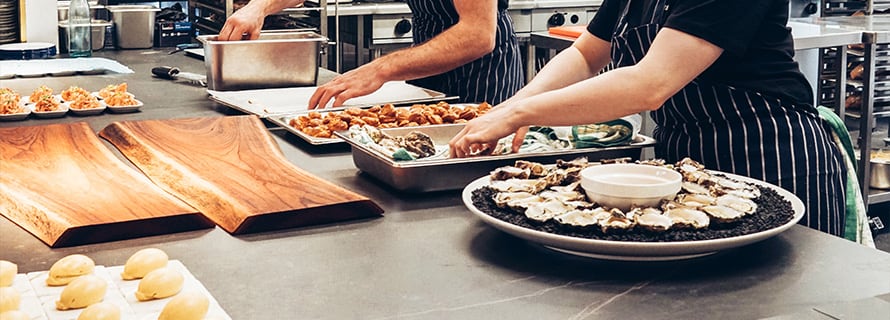Whether you visit a restaurant, a hotel, or an amusement park, there are certainly lots of threats and dangers that lurk around you and your family. Whether you are a regular visitor of such places or an owner of one, being aware of the sanitation tips is equally important for all to keep yourself, your family, and everyone related to you safe.
As we live in a time where constantly changing diseases and illnesses are always around us, proper sanitation has become even more important now, especially in the hospitality industry, as it is more prone to contamination and bacterial growth.
Here are the top 5 sanitation tips to consider for the hospitality industry to maintain a clean and sanitized environment:
- Maintain Personal Hygiene
Most food-borne illnesses are caused by microorganisms or bacteria caused by people who directly handle food but don’t consider personal hygiene a priority. This includes switching from different items and materials without washing or covering their hands, such as switching from raw food to cooked food without any covering.
For this issue, people directly related to food need to wash their hands multiple times in a day for at least 20 seconds, change hand gloves multiple times a day, cover any injuries or cuts in their hands and avoid touching surfaces that could be contaminated such as door knobs and faucet handles.
- Sanitize Equipment
Proper sanitizing of every piece of equipment in the hospitality industry should occur once a week to avoid contamination and bacterial growth. In restaurants, most cutting and cooking equipment is made so that it becomes difficult to clean them and get each particle of food out. When equipment can’t be cleaned properly, it should be sanitized regularly to stop microorganisms from growing and polluting other elements.
- Sanitize Contact Surfaces
Clean and sanitize all the contact surfaces in the hospitality industry to avoid microorganisms and pests contaminating people and food that come into contact with these surfaces. A biweekly sanitization of your restaurant’s contact surfaces should occur because they are most prone to attracting bacteria and germs due to cutting different raw food items on the same surface.
Plus, cleaning can’t be enough as small insects and bacteria can lurk in corners or cracks of these surfaces, which makes them hard to identify while cleaning.
- Safe Storage
In order to avoid contamination and the growth of microorganisms, it is crucial to store food at an appropriate temperature and in the right manner so it doesn’t get spoiled or grow bacteria. Similarly, storing the food in a sanitized setting is also important as food under a certain temperature is most prone to growing bacteria and contamination. For this reason, every piece of equipment and place where food is stored should be sanitized, such as refrigerators, microwaves, ovens, and deep freezers.
- Efficient Housekeeping
While sanitizing every piece of equipment and surface in the hospitality industry, it is equally important to main efficient housekeeping ethics to keep the staff and even the guests safe and secure at all times. Proper sanitization and pest control should be followed monthly for a cleaner environment. Also, the staff should be educated on using chemicals, detergents, pesticides, and sanitizers to avoid any inconvenience or hazard due to negligence or unprofessionalism.
Conclusion
Efficient and regular sanitization is important for the hospitality industry and any industry that caters to people in general. Working on the sanitization mentioned above tips, you can effectively keep your premises clean and sanitized.
Sources:
https://www.kbic.com/blog/food-science-recruiting/5-essential-tips-effective-sanitation/
https://www.sigmatest.org/blog/7-hygiene-tips-for-restaurant-owners/

